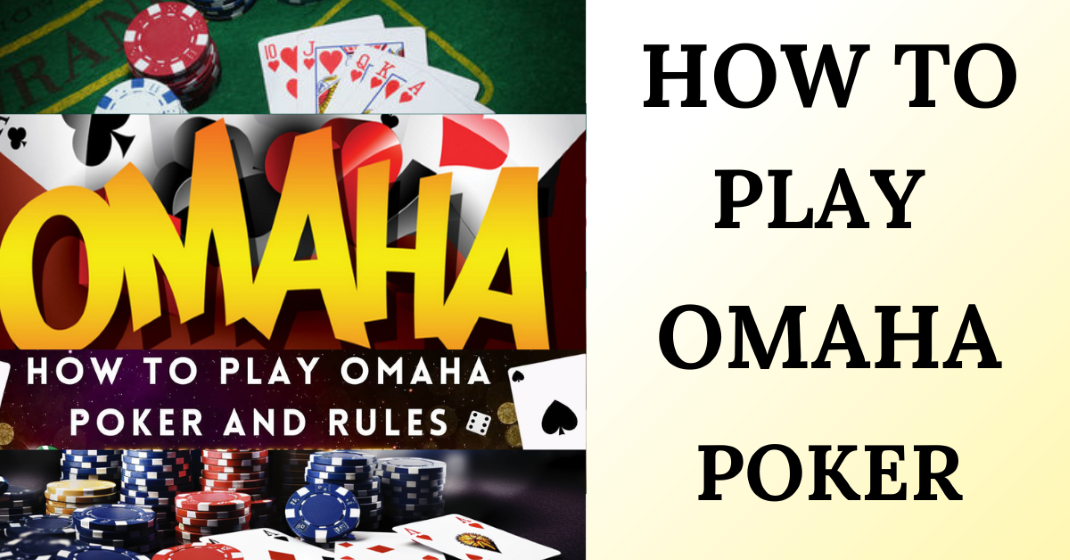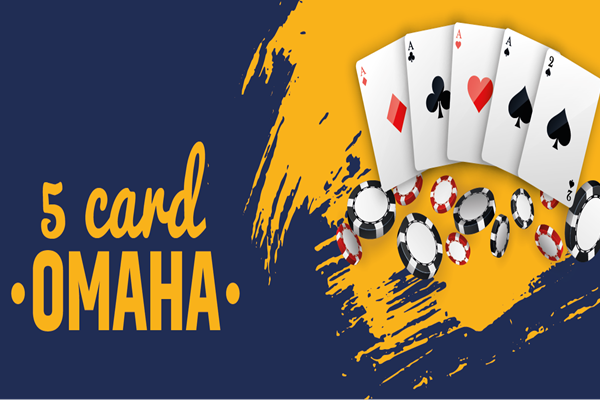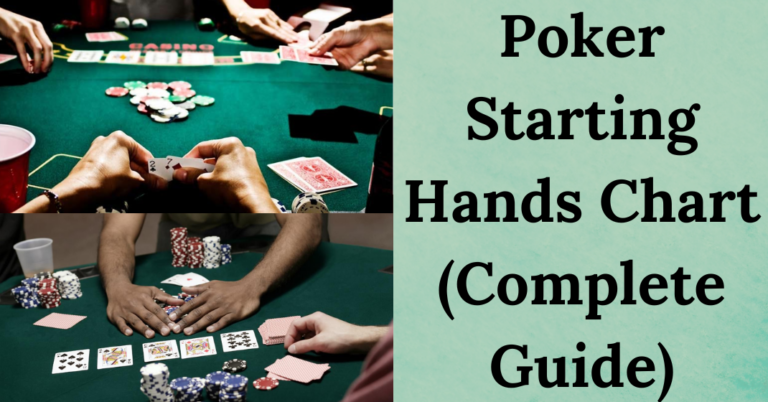How to Play Omaha Poker For Beginners (Rules And Gameplay)

While Texas Hold’em overwhelms most cardrooms, Omaha poker offers a fresh challenge for newcomers and veterans alike. As Hold’em’s action-packed cousin, Omaha builds on familiar foundations but demands more cards and creativity from players with its four-hole-card twists. Mastering Omaha requires relearning core strategies around starting hands, position battles, reading boards, managing bets, and more. This definitive guide has beginners building on Hold’em transfers towards new disciplines, securing wins. We cover vital rules, concepts like pot control and implied odds, speciality variants, and common pitfalls needing awareness. Players at any skill level can expect clearing advice for navigating Omaha’s steeper learning curve through robust examples and tailored tips. Hence, the game’s richness unfolds and rewards smooth skill-building dedicated to continually advancing play.
What is Omaha poker?
Omaha poker emerged in the 1980s as a Texas Hold’em poker variant. While less popular than Hold’em, Omaha poker offers more action and possibility for high hands due to players being dealt four-hole cards instead of two.
There are several critical differences between Omaha and Hold’em:
- In Omaha, players must use precisely two of their hole cards and three community cards to make the best five-card hand, unlike Hold’em, where players may use one, both, or none of their hole cards.
- With four-hole cards instead of two, there are more possible hand combinations, leading to bigger pots and more action.
- Hand values tend to run higher as players can make stronger hands like straights and flushes more frequently.
Today, Omaha continues to grow in popularity due to its fast-paced action and the more significant opportunities for high-skilled players to distinguish themselves. The most prevalent version played today is Pot Limit Omaha.
Also Read: How To Play Texas Hold’em: Rules And Tips You Must Know
HOW TO PLAY OMAHA POKER: RULES AND GAMEPLAY

While Omaha poker follows a similar structure to Texas Hold’em, some essential rules make the games quite different. Firstly, players are each dealt 4 private hole cards instead of 2. Players MUST use precisely 2 of these hole cards together with 3 of the community cards to compose their best 5-card poker hand.
Secondly, the betting structure works similarly to hold’em with forced blind bets and 4 subsequent betting rounds (preflop, flop, turn, river). However, there’s a critical difference – in Pot Limit Omaha, the maximum bet equals the amount currently in the pot.
Here’s how a sample hand plays out step-by-step:
So those are the basic rules and gameplay flow. While similar sequence to Hold’em, we need to remember key Omaha differences:
2 hole cards
STRATEGIES FOR PLAYING OMAHA POKER
Key strategies include:
- Starting hand selection: Unlike Hold’em, where tight starting standards like big pairs and big aces are common, having 4-hole cards in Omaha allows players to play more speculative hands with good coordination, like double-suited cards. Hands with connected cards or three-flushes and wrap-around straight-draws have higher potential.
- Reading cards and opponents: Pay close attention to possible hand combinations your opponent could be making based on their actions and the community cards out there. For example, if the flop comes with three hearts, someone playing aggressively likely has a flush draw or early stages of a made hand. Determine their hand ranges based on their positions and styles.
- Aggression and bluffs: While the increased hand possibilities curtail wholesale bluffing compared to Hold’em, you still play aggressively with big draws before the flop since these will be mathematical favorites versus weaker-made hands. You can even represent having hit a big hand on well-coordinated board textures to try and force folds.
- Bet sizing: As bets are capped at a limit, smart bet sizing becomes critical. Bet small as a blocker bet with marginal hands to risk less money while maximizing large bets with nut hands to build huge pots when you likely have the winner.
- Positioning: Leverage position against opponents by playing more hands-on buttons and cutoffs while staying disciplined in early seats. Call more from later seats with speculative hands since you can react better with more information visible after others have acted.
ADVANCED OMAHA POKER CONCEPTS
Additional advanced strategies:
- Pot odds/expected value: Learn to translate pot sizes, bet sizing, and your equity odds into clear decisions rather than playing by instinct alone. If you have a 20% chance to win a hand, is calling a pot-sized bet correct if there is now $100 in the pot? Calculating these situations qualifies which plays are +EV.
- Multi-way pots: When evaluating play decisions on later streets with additional players seeing the flop, players must narrow their hand focus primarily to extremely strong hands and nut draw-type hands that can withstand opponent calls or action. For example, bottom or middle sets become more vulnerable and less valuable in multi-way pots to potential straights or flushes that could materialise.
- Game theory optimal play: Learn principles from solver-based tools showing game theory optimal play for various scenarios. While impossible to implement purely with all of Omaha’s possibilities, applying these mathematically sound tactics in chunks will definitely improve the overall strategic approach.
- Balance and polarisation: Use a balanced approach to blend proper hand ratios. Don’t become too predictable by overly representing only strong hands or bluffs. Polarisation adjusted for table dynamics and opponent profiling tailors ranges well.
OMAHA POKER VARIANTS
There are popular variations of Omaha as well:
Omaha Hi/Lo
Uses standard hand rankings but splits the pot between the highest and lowest qualifying hands. This variant requires additional strategic considerations, given players contend for both ends of hand possibilities. Play styles diverge distinctly for those pursuing high versus low hands round to round. And hands barely missing high qualifying hands suddenly regain value from their positioning as newly relevant low hands.

5-Card Omaha
Adds further variation requiring players to use 3 hole cards (instead of 2) out of their 4 to compete against the board’s 2 cards (instead of 3 usually). This exponentially grows hand combinations beyond standard Omaha and rewards players for adjusting to the sheer possibilities their opponents now wield every round beyond just the nuts. Mastering this game relies on face-to-face analysis and balanced aggression as much as virtues like discipline and prudence in standard forms.

Courchevel
Here, players are dealt 3 hole cards, with the first flop card revealed BEFORE the betting round, adding excitement and anticipation. This variation enables substantial pre-flop play based on the early board card peek. Hand values shift significantly relative to the standard Omaha convention.

Also Read: How To Play Poker Without Chips (7 Unique And Fun Ways)
TIPS FOR OMAHA BEGINNERS
Several tips for new players:
CONCLUSION
Omaha poker has emerged as a fast-paced, high-action alternative to Texas Hold’em, offering more significant opportunities for skilled play and explosive excitement at the tables and beyond. Understanding the rules, hand rankings, basic strategies, advanced concepts, variations offered, and practical tips covered here provides a thorough guide for how to play Omaha poker and appreciate its growing popularity. With proper study and practice, Omaha poker presents an enjoyable game of skill, intensity, and social fun.






